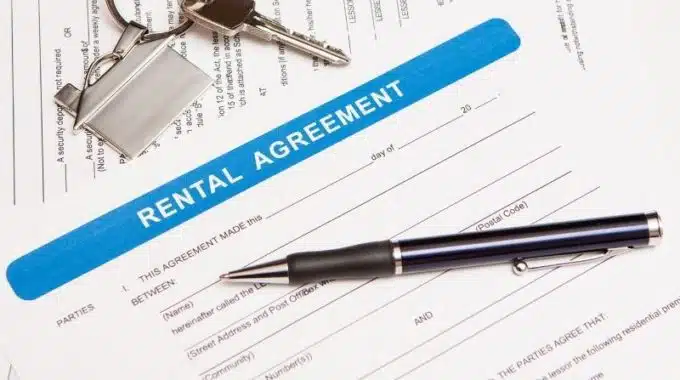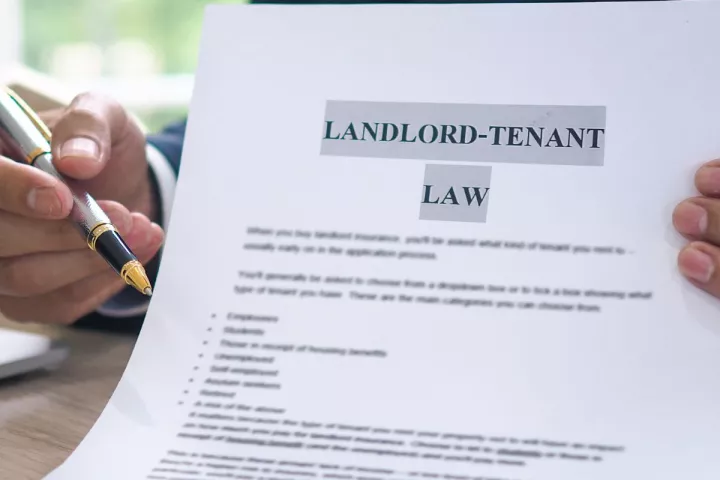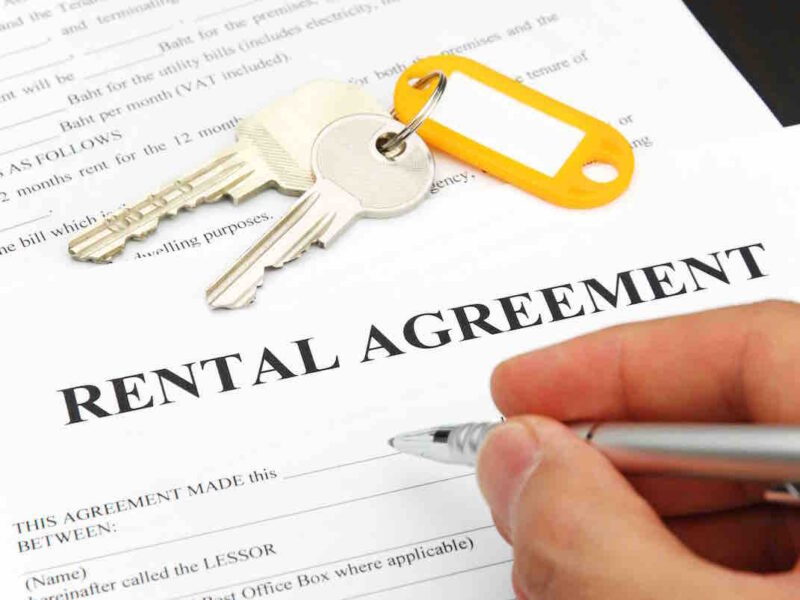Landlords cannot terminate a contract until issues are resolved due to legal obligations and circumstances. They must follow specific rules, such as giving notice and following eviction procedures. Common reasons for contract termination include non-payment of rent or property damage.
However, certain circumstances, like pending repairs or unresolved legal disputes, may prevent contract termination until these issues are addressed. Lease agreements and rental laws also play a vital role, outlining terms and guiding termination procedures.
To legally end a contract, landlords must follow proper steps, including giving written notice and adhering to legal procedures. Unlawful contract termination can lead to consequences such as fines or lawsuits, emphasizing the importance of following the law.
What are the legal obligations for landlords in contract termination?

Landlord-tenant laws vary by location, so it’s important to check your specific state or area’s regulations. However, here’s a general idea of some legal obligations landlords might have during contract termination
Proper Notice
Landlords typically need to provide written notice to tenants before ending the lease. This notice period can range from 30 to 60 days, depending on the reason for termination and local laws.
Valid Reason for Termination
Landlords can’t just evict a tenant for no reason. There must be a legitimate reason, like unpaid rent, violation of lease terms (having unauthorized pets), or the landlord needing the property back for personal use (with proper notice).
Following Eviction Procedures
If a tenant doesn’t leave after a proper notice, the landlord usually needs to go through the court system to evict them legally. This process involves filing official paperwork and attending court hearings.
Security Deposit Return
When a tenant moves out, the landlord must return their security deposit within a specific timeframe (often 30 days) minus any deductions for unpaid rent or damages beyond normal wear and tear. They should provide an itemized list of any deductions made.
What are common reasons for landlords to end rental contracts?

Here are some common reasons why landlords might end rental contracts. But it’s important for landlords to make sure their reasons follow the law to avoid arguments with tenants.
Non-payment of rent: When tenants fail to pay rent as agreed upon in the lease agreement, landlords may choose to terminate the contract.
Lease violations: If tenants breach the terms of the lease agreement, such as subletting without permission or causing significant damage to the property, landlords may decide to terminate the contract.
Property damage: Landlords may terminate the rental contract if tenants cause extensive damage to the property beyond normal wear and tear, especially if the damage poses a safety risk or affects the property’s habitability.
Illegal activities: If tenants engage in illegal activities on the rental property, such as drug dealing or criminal behavior, landlords may terminate the contract to protect the safety and well-being of other tenants and neighbors.
Owner occupancy or renovation: Landlords may need to terminate rental contracts if they intend to occupy the property themselves or undertake significant renovations or repairs that require the property to be vacant.
End of lease term: In some cases, landlords may choose not to renew the rental contract once the lease term expires, especially if they have other plans for the property or if they wish to increase the rent.
When can’t a landlord terminate a contract until issues are resolved?
A landlord cannot terminate a contract until issues are resolved in several circumstances, including
Pending Repairs
If there are repairs or maintenance problems in the rental property that make it hard for the tenant to live there, the landlord might not be able to end the contract until these problems are fixed.
For example, if there are plumbing issues causing water leaks or electrical problems posing safety hazards, the landlord must prioritize resolving these issues before proceeding with any termination attempts.
Legal Disputes
If the landlord and tenant are in the middle of a legal disagreement about lease terms, rent, or property conditions, the landlord might have to settle these issues in court before ending the contract.
This often involves mediation, arbitration, or court proceedings to reach a resolution that satisfies both parties and ensures compliance with rental laws.
Violation of Tenant Rights
Landlords are prohibited from terminating a contract in a manner that violates the tenant’s rights under rental laws or fair housing regulations.
For example, terminating a contract as retaliation against a tenant who has filed a complaint or exercised their legal rights, such as requesting repairs or reporting code violations, would be unlawful.
In such cases, the termination cannot proceed until the landlord rectifies the violation and ensures compliance with tenant rights laws.
Unlawful Eviction Attempts
f the landlord tries to end the contract unlawfully by actions like changing locks, cutting utilities, or using harassment, they can’t proceed until they follow legal eviction processes.
This usually means giving written notice, filing an eviction lawsuit, and getting a court order before forcing the tenant to leave.
What can tenants do if facing unlawful contract termination?

If facing unlawful contract termination, tenants have several options to protect their rights and seek recourse
Firstly, tenants can consult with a lawyer or legal aid organization specializing in landlord-tenant law to understand their rights and options. Legal professionals can provide guidance on how to challenge the unlawful termination and pursue remedies available under rental laws.
Moreover, they should review their lease agreement to determine if the termination violates any terms or provisions outlined in the contract. If the termination is inconsistent with the lease terms or rental laws, tenants can use this information to challenge the legality of the termination.
However, tenants can communicate with the landlord to address the issue and attempt to resolve the matter amicably. They can assert their rights and present evidence supporting their position to negotiate a fair resolution or request that the landlord withdraw the unlawful termination.
Furthermore, tenants can file a complaint with relevant housing authorities or tenant advocacy organizations if they believe their landlord’s actions constitute unlawful termination. These organizations can investigate the matter and take appropriate action to enforce tenant rights and hold landlords accountable for any violations.
If all other options fail, tenants may choose to take legal action against the landlord by filing a lawsuit in civil court. This legal recourse allows tenants to seek remedies such as injunctive relief to prevent the termination, monetary damages for any losses incurred, or specific performance to enforce the terms of the lease agreement.
What are the consequences of unlawfully terminating a rental contract in uk?

In the UK, unlawfully terminating a rental contract can have some serious consequences for a landlord.
If a court finds the eviction attempt unfair, they might order the tenant to be allowed to stay in the property. This means the landlord would have to wait until a valid reason for termination arises, following proper procedures.
The court may award compensation to the tenant for the inconvenience and stress caused by the unlawful eviction attempt. This could include covering the tenant’s moving costs or temporary accommodation expenses.
The landlord might be responsible for covering the legal costs associated with the court case, including the tenant’s lawyer fees.
An unlawful eviction attempt can damage the landlord’s reputation. Tenant advocacy groups might get involved, and the situation could be reported to relevant authorities.
FAQ
How does a landlord end a periodic tenancy?
A landlord can usually use a Section 21 notice to end a periodic tenancy. This notice is commonly referred to as a ‘no-fault eviction’, as the landlord does not typically need a legal reason to want to evict the tenants.
Can a landlord refuse to renew a tenancy agreement in the UK?
Yes, landlords can refuse to renew a tenancy agreement. The decision to renew or not lies with the landlord at the end of the agreement’s fixed term.
How much notice do you give a landlord?
Many standard lease agreements require 30 days’ notice if you plan to move out, regardless of whether your lease term is ending. Other lease agreements may require 60 days’ notice3.
How much notice does a tenant have to give a landlord to move out in the UK?
If your tenancy started or was renewed after 1 October 2015, you must give at least 2 months’ written notice that you intend to leave (unless your lease states you must give more)
Can a landlord cancel a tenancy agreement before it starts in the UK?
Legally, there is no automatic requirement for the renewal of a tenancy agreement once its fixed term concludes. However, landlords can refuse to renew a tenancy agreement. The decision to renew or not lies with the landlord at the end of the agreement’s fixed term
Final thoughts
It’s important for both landlords and tenants to understand why a contract can’t end until issues are resolved. Legal obligations, lease agreements, and rental laws are crucial in this process, protecting the rights of everyone involved.
By following the correct steps, communicating well, and solving problems together, landlords and tenants can keep their rental relationships smooth and prevent legal problems. Landlords must respect tenant rights and follow the law for fair and lawful contract endings.
Overall, sticking to legal rules and working together creates a positive rental experience for everyone.



